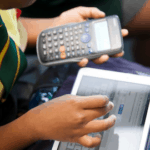From Dunkin’ Donuts to Farm Seeds: Discovering the Promise of Social Franchising
From Franchise to Social Franchise
Okay I’ll admit it. Every so often when I drive past one of the ubiquitous Dunkin’ Donuts which blanket New England I stop in for a maple-glazed donut. Maybe it’s a New Hampshire thing – we are obsessed with maple products up here. Despite the fact that it’s not the best food choice, one thing I can count on is that every maple donut I buy at any Dunkin’ Donuts will look the same, taste the same and have the same nutritional value. In the U.S. we are surrounded by so many franchise businesses we often take them for granted. Franchising accounts for almost 9 million jobs and brings dozens of small businesses to almost every community in America through a methodology that masters replication and scale at a massive, and often highly profitable, level.
What if the power of the franchise was turned into a tool for solving developing world problems such as lack of access to clean water, modern energy sources, pharmaceutical medicines or agricultural inputs and know-how? The practice of business format franchising, the technical term for a modern, well-organized franchise network, has been harnessed as an effective delivery mechanism through a methodology called social sector franchising (sometimes known as microfranchising) by dozens of NGOs and socially oriented businesses in Asia, Africa, Latin America and other places, including the U.S. and Europe.
The Cases of Cambodia and Bangladesh
In Cambodia, 90 percent of the poor live in rural areas, relying heavily on agriculture for their livelihoods. But the lack of irrigation and water control systems, poor seed quality and limited access to market information have prevented many of these people from earning enough to support their families through agriculture. Lors Thmey, a Cambodian social enterprise established by iDE Cambodia, uses a network of 235 franchised farm business advisors to provide advisory services and agricultural inputs (such as seeds and irrigation equipment) to encourage and equip farmers to grow market-oriented crops. Farm business advisors (FBAs) sell products at a profit, often on credit with payment due at harvest, and provide technical advice as an embedded service during return visits throughout the growing season. FBAs, recruited by iDE, which acts as a central franchisor enterprise, earn commissions on agricultural inputs that they sell, and profit from their own crops, which double as demonstration plots. Their farmer clients benefit from products and advice that reduce risks, improve yields and increase incomes. The enterprise is profitable at the farmer and FBA level, near break-even at the provincial branch level, and aiming for profitability at the national level in the next three to four years. In partnership with World Vision Australia, the Lors Thmey business will expand its customer base in existing World Vision project areas, linking farm business advisors to World Vision communities.
Dairy production in Bangladesh suffers from many challenges, including disease, low production cattle breeds, and the lack of inputs such as medicines and feed. An innovative microfranchise model called Krishi Utsho (KU), an agricultural source in Bengali launched by CARE Bangladesh, has developed a network of over 110 franchisee agro-dealers serving over 30,000 farmers with a wide variety of products. From feed to seeds and medicine to machinery, the offerings are coupled with information and agricultural extension services, creating a one-stop solution for farmers’ input supplies. Since the microfranchise network was launched, average milk production has increase by more than 50 percent, and it is expected to rise as new strains of more productive cattle begin to produce milk. KU conducted an in-house survey on 400 randomly selected farmers to measure its impact. The survey found that farmers’ income increased by 30 percent and food spending increased by 10 percent, while distance traveled and cost to access input reduced by 50 percent. Quality of products has substantially improved. All the franchisees were able to break even within 12 months, and many have doubled revenue. KU as franchisor is projecting to break even within three years. Krishi Utsho is also a women’s empowerment program, fighting discrimination by giving women opportunities to own franchises providing livestock health services. Women own 23 percent of Krisi Utsho franchises, but this figure will grow as CARE makes more microfranchises available to women.
Supporting Social Franchise Entrepreneurs
These are just two examples of how social sector franchising is serving customers usually considered too remote or poor to reach, and creating entrepreneurship opportunities for women and men from these rural communities. By scaling up agricultural input supply and extension services, food insecurity is reduced in areas where reliable access to abundant and nutritious food is not always possible.
A number of other initiatives are also boosting the sector. Through its Center for Social Innovation and Enterprise (CSIE) at the University of New Hampshire, the Social Sector Franchising Initiative (SSFI) works to build awareness of franchising as a robust and scalable business development model for low-income communities. The SSFI sponsors an annual Social Sector Franchise Innovations Roundtable and is launching a groundbreaking Living Case Study action research and learning project that will assist several social franchise entrepreneurs with one-on-one technical support, while providing learning opportunities to practitioners and the wider learning community. Beyond that, in partnership with the University of New Hampshire, the International Franchise Association will supply expert commercial franchise mentors through its Social Sector Task Force.
Join us at the workshop session “Enhancing Food Security through Social Franchising: Lessons from the Field” at the 2016 SEEP Annual Conference in September to learn more about the iDE/World Vision Australia and CARE Bangladesh microfranchise programs and about how social sector franchising is growing across the globe as an anti-poverty and food security strategy. Maybe I’ll even spring for a box of maple donuts to share!
Note: NextBillion is a media partner for the SEEP Annual Conference, which will focus on the theme “Expanding Market Frontiers.” This post originally appeared on the SEEP Network site as part of its ongoing Annual Conference – Peer Learning Sessions series and has been republished with permission.
William (Bill) Maddocks is the director of the Sustainable Microfinance and Development Program (SMDP) at the University of New Hampshire’s Carsey School of Public Policy.
Image credit: Sameold2010/Flickr.
- Categories
- Agriculture



